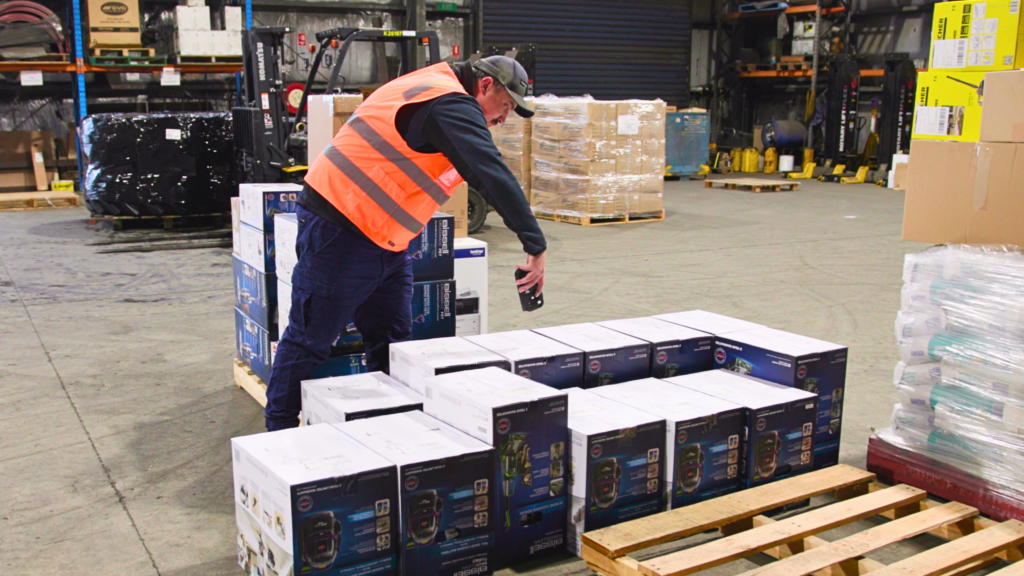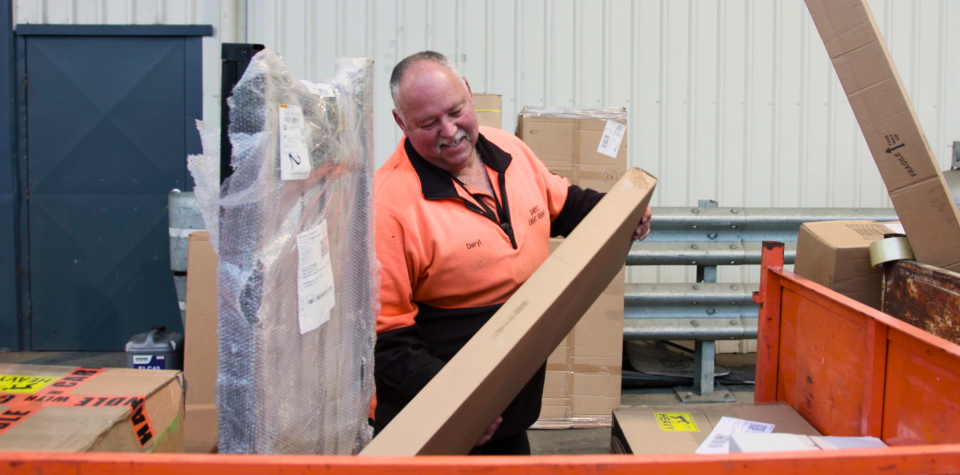And how they impact your bottom line.
Table of contents:
– What is freight collect?
– Pros and Cons of freight collect
– What is freight prepaid?
– Pros and cons of freight prepaid
– Which one is right for you?
– Knowledge is powerful
When managing freight, it’s important to be aware of the different payment terms that can come up in negotiations, and how they impact your bottom line.
Freight Collect and Freight Prepaid are two of the most common, and often misunderstood, payment terms in the industry – which can cause a lot of confusion (and make you some enemies in the accounting department).
On the other hand, understanding these terms properly can help you identify which path is going to help you maximise profits, maintain good business relationships, and reduce interpersonal conflicts and organisational woes.
Read on to get the low down on freight collect vs. freight prepaid: understand what each term means, the pros and cons, and which types of businesses may benefit from the different terms – so you can make the right decision for your business.
See how we are making thousands of Freight Managers lives easier
Or
Have a 15 minute chat with a logistics strategist
What is freight collect?

Freight collect is a popular payment term, used most often by large volume carriers or those sending shipments to many different locations (particularly different states and countries), as it helps to improve cash flow and allow greater control over shipping schedules.
But what does the term mean? In a ‘freight collect’ payment, freight charges are billed to the party receiving a shipment, often called the consignee, rather than the party sending it over. Basically, the person that ‘collects’ the shipment at the end has to pay for the cost of its transit. The party that ships the goods will negotiate the terms of this payment before the shipment is sent out, which should be recorded in the purchase order, contract, or shipping documents that accompany the freight.
Pros and Cons of freight collect
▶️ Pro: Fuss Free
With this method, the shipper and consignee can avoid the headache of chasing payments, particularly in the case of pesky ancillary charges. This means that, when additional fees are involved, additional payments don’t need to be coordinated, and both parties can avoid the nasty surprise of owing, or being owed, an unexpected sum.
▶️ Pro: Flexibility
Freight collect spreads out costs by separating the payment dates for the goods themselves and the cost of shipment, allowing businesses more flexibility and easier cash flow management.
▶️ Con: Uncontrolled Variables
Freight Collect relies on trust between the shipper and recipient, because the freight is sent out with one variable still in play: whether the consignee will pay for the delivery charges. It’s important to remember that there is never a 100% guarantee that the consignee will actually pay the cost of shipping when their delivery arrives. This can put the shipper at risk of paying for storage, or for the shipment to be returned to them, resulting in extra hassle and sometimes even expensive legal fees to recover costs.
What is freight prepaid?
As you might’ve guessed, Freight Prepaid is the opposite of Freight Collect. Under this term, the cost of shipping is ‘prepaid’ by the shipper of goods rather than the recipient, and this extra cost is included in the purchase price of goods. This also means that the shipper is held responsible for any extra, ancillary charges that might arise in the transportation process.
Pros and Cons of freight prepaid
▶️ Pro: Builds trust with clients
Freight prepaid has the advantage of being a relatively upfront method of payment, which protects the interests of the shipper when initiating a relationship with consignees. This method makes sure that the vast majority of cost is covered before goods are shipped, reducing the possibility of having to store or return goods at the shipper’s expense.
▶️ Pro: Protects specialty goods and services
Freight prepaid, particularly free on board (FOB) destination arrangements, often mean that the shipper maintains legal ownership of the goods whilst they are in transit, and transfers that ownership only once the goods have been delivered. This offers advantages to parties exchanging fragile goods, or those that require bespoke delivery services. Shippers of these goods often need airtight insurance policies to cover the risk of transit—which in many cases only apply when they maintain ownership of the goods throughout their journey.

▶️ Con: Cash flow issues
It is important to remember that freight prepaid arrangements don’t always guarantee a ‘one and done’ payment, because extra charges can be incurred throughout the shipment’s journey. This can either result in the shipper needing to swallow the loss, or ask the recipient to cover the extra charge. In these circumstances, payments can be delayed due to their unexpected nature—causing cash flow issues for your business.
Which one is right for you?
Still struggling to decide between the two? Read on to get our take on the situations and types of businesses that are most suited to each payment term.
Freight Collect
In general, freight collect makes it easier for businesses to coordinate deliveries that often incur extra fees, or where delayed payments are organisationally or financially necessary. However, freight collect relies on a higher degree of trust between the two parties, since more money is at stake for the shipper in the case of something going wrong. Many businesses find that freight collect provides an ideal balance between the shipper’s need for security in the form of an upfront payment with the consignee’s wish to spread out the financial burden of a shipment, particularly in the case of larger shipments.
For instance, if a shipper was sending an expensive, high volume shipment of rubber ducks to a trustworthy but small franchise of home goods stores, choosing freight collect would balance the shipper’s need for security with the small business’ financial capacity.
Freight Prepaid
Alternatively, freight prepaid is ideal for shipments that are unlikely to incur ancillary charges, meaning that the coordination of payment can often be kept simple through a single transaction. Freight prepaid is often used by lower volume shippers, or those shipping to parties with whom they haven’t yet built a foundation of trust.
For example, if a shipper had to send only three boxes of balloons to a party supply store startup, then freight prepaid would be an ideal way to build trust between the two parties, particularly when the consignee doesn’t have consistent cash flow.
See how we are making thousands of Freight Managers lives easier
Or
Have a 15 minute chat with a logistics strategist
Knowledge is powerful
Knowing about different industry terms and their financial and legal implications is one of the best business decisions anyone can make, and gives you control over all the moving parts that make up a shipment’s transportation journey.
If you want to know more about payment terms, check out our article breaking down what you need to know. And, if you’re feeling on a roll, check out how TransVirtual can help you handle your transportation needs from one place – your pocket.
Contact us today for a chat or book a free demo. Our team are here to help and we’ll work with you to find the best solution for your business.



